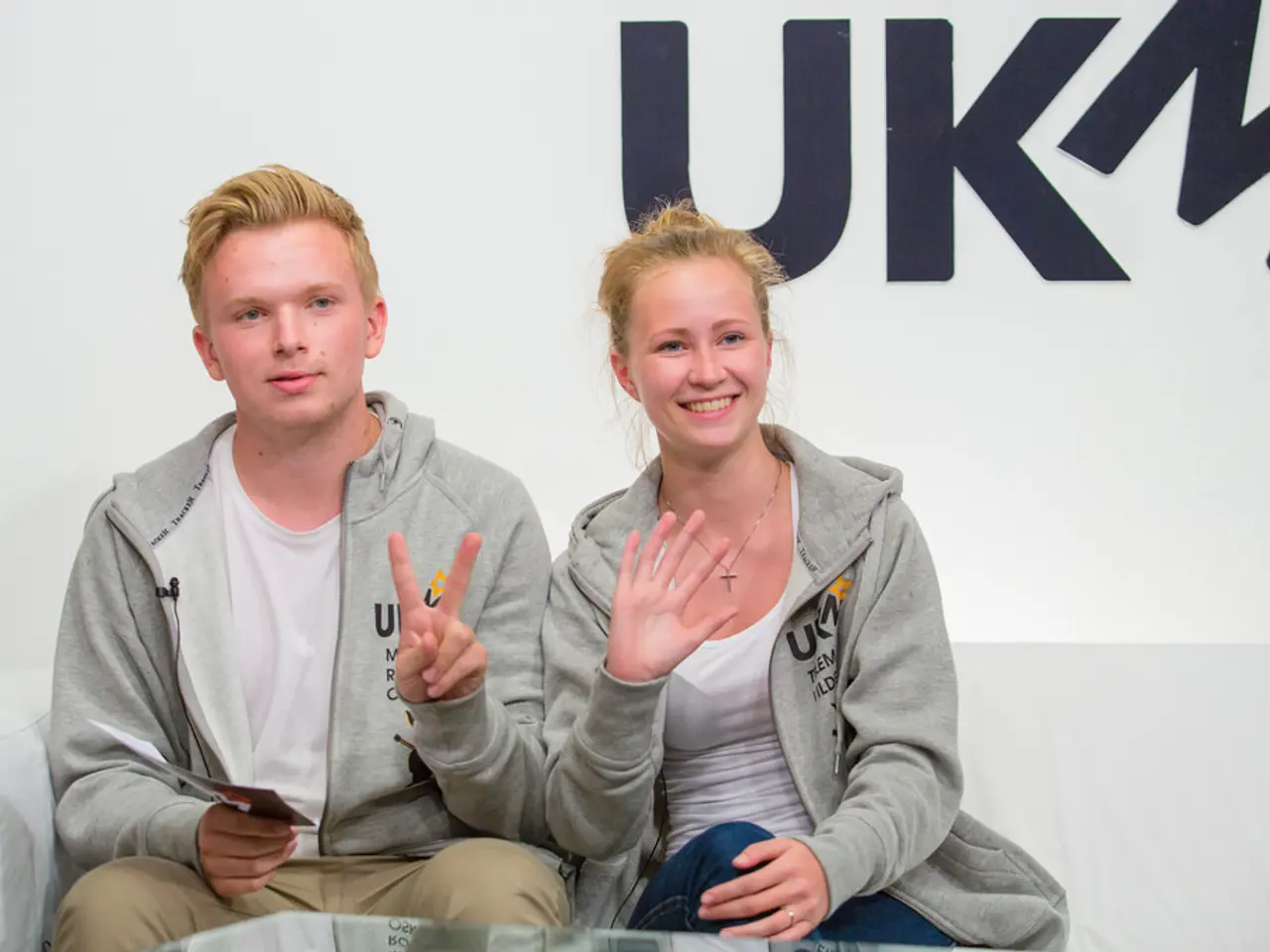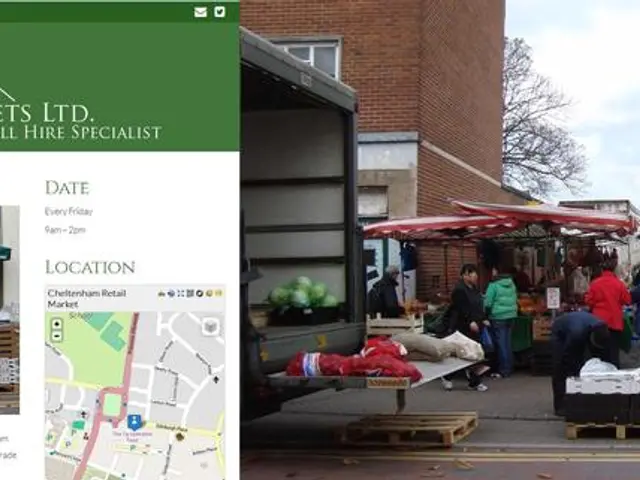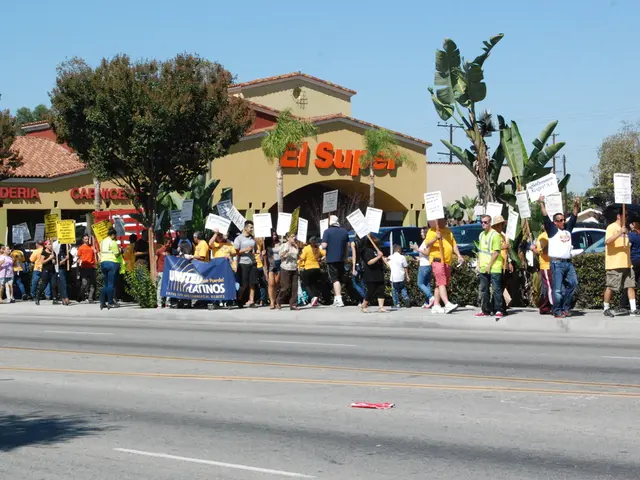Impact of Brexit on Migration and Acquiring Foreign Skills in the Creative Sector
The impact of Brexit on the UK's Creative Industries has been a subject of interest, particularly in relation to migration and foreign workers. A research paper authored by Ian Fillis, Mohamed Haddoud Mohamed, and Tammy Murphy of Liverpool John Moores University and the British University in Dubai, delves into this topic.
The report, titled "Post-Brexit migration and accessing foreign talent in the Creative Industries", reviews the current evidence for the impact of Brexit on this sector. Since the UK's departure from the EU, significant changes have been observed in visa policies and migration systems affecting the hiring of foreign talent in the Creative Industries.
One of the notable changes is the implementation of a points-based immigration system. This system has led to an increase in temporary visas for creative workers, with a 70% rise between 2021 and 2024. This surge outpaces the 13.5% rise for non-creative sectors, indicating the sector's continued dependence on international talent. Migrants constitute approximately 16% of the creative workforce as of 2024, slightly higher than the broader economy's 14% migrant share.
However, recent government reforms in 2025 have introduced stricter rules. The minimum skill level for Skilled Worker visas has been raised from RQF Level 3 to RQF Level 6, narrowing eligibility for many workers and removing sponsorship for 111 occupations, including some creative roles. This means that while hiring highly skilled global talent is still possible, it has become more restrictive, pushing employers to focus on higher-skilled migrants and possibly invest more in domestic workforce training.
The UK government has also introduced the Global Talent Visa route, which has been particularly successful in the creative fashion sector. Nigerians lead the world in securing these visas for fashion work, highlighting the UK's strategic use of immigration policy to support global creative exchange and diversity, strengthening its cultural influence and industry competitiveness post-Brexit.
The impact of Brexit is more disruptive in live music and touring sectors due to visa and logistical complications. Reports show a significant decline (26%) in UK acts performing at EU festivals since Brexit, raising concerns about the loss of opportunities for UK talent overseas.
In summary, while Brexit has ended free movement and imposed stricter visa requirements, the UK has adapted by channeling immigration policy towards a skilled, point-based system prioritizing international talent in creative sectors. Despite more stringent rules, visa issuance for creative occupations has grown substantially, reflecting the sector’s dependence on global talent. However, new skill thresholds and sponsorship rules may restrict some roles. The government also uses specialized visa routes to attract diverse creative talent globally, balancing post-Brexit immigration control with sector competitiveness.
The report, based on a survey of employers commissioned by the Creative Industries Council, presents an analysis of two stages of research, an initial qualitative stage and a second quantitative stage. The authors of the research paper recommend changes to the UK's visa system to make it easier for UK firms to hire specialized, foreign talent. However, the report does not provide specific data for the UK's creative goods and services exports since Brexit or mention any changes in the UK's visa system as a result of Brexit.
[1] Creative Industries Council Employer Survey (2022) [2] Fillis, I., Haddoud Mohamed, M., & Murphy, T. (2023). Post-Brexit migration and accessing foreign talent in the Creative Industries. Liverpool John Moores University. [3] Office for National Statistics (2024). Migrant Workers in the UK Creative Industries. [4] UK Music (2023). Brexit and the UK Music Industry: An Overview.
- The report titled "Post-Brexit migration and accessing foreign talent in the Creative Industries" delves into the impact of Brexit on the sector, reviewing current evidence and analyzing two stages of research.
- A significant change in the UK's visa policies since Brexit is the implementation of a points-based immigration system, leading to an increase in temporary visas for creative workers.
- In 2025, the government introduced stricter rules, raising the minimum skill level for Skilled Worker visas and removing sponsorship for certain creative roles, making it more restrictive to hire global talent.
- The UK government's Global Talent Visa route has been particularly successful in the creative fashion sector, with Nigerians leading the world in securing these visas.
- Despite more stringent rules and new skill thresholds, visa issuance for creative occupations has grown substantially, reflecting the sector’s dependence on international talent.
- The Creative Industries Council Employer Survey (2022) and other reports, such as those by Fillis, Haddoud Mohamed, and Murphy (2023), UK Music (2023), and the Office for National Statistics (2024), provide evidence supporting the analysis that the UK's Creative Industries continue to rely heavily on education-and-self-development, talent, and skills from around the world, contributing to sports, arts, education, industries, and the overall economy.








